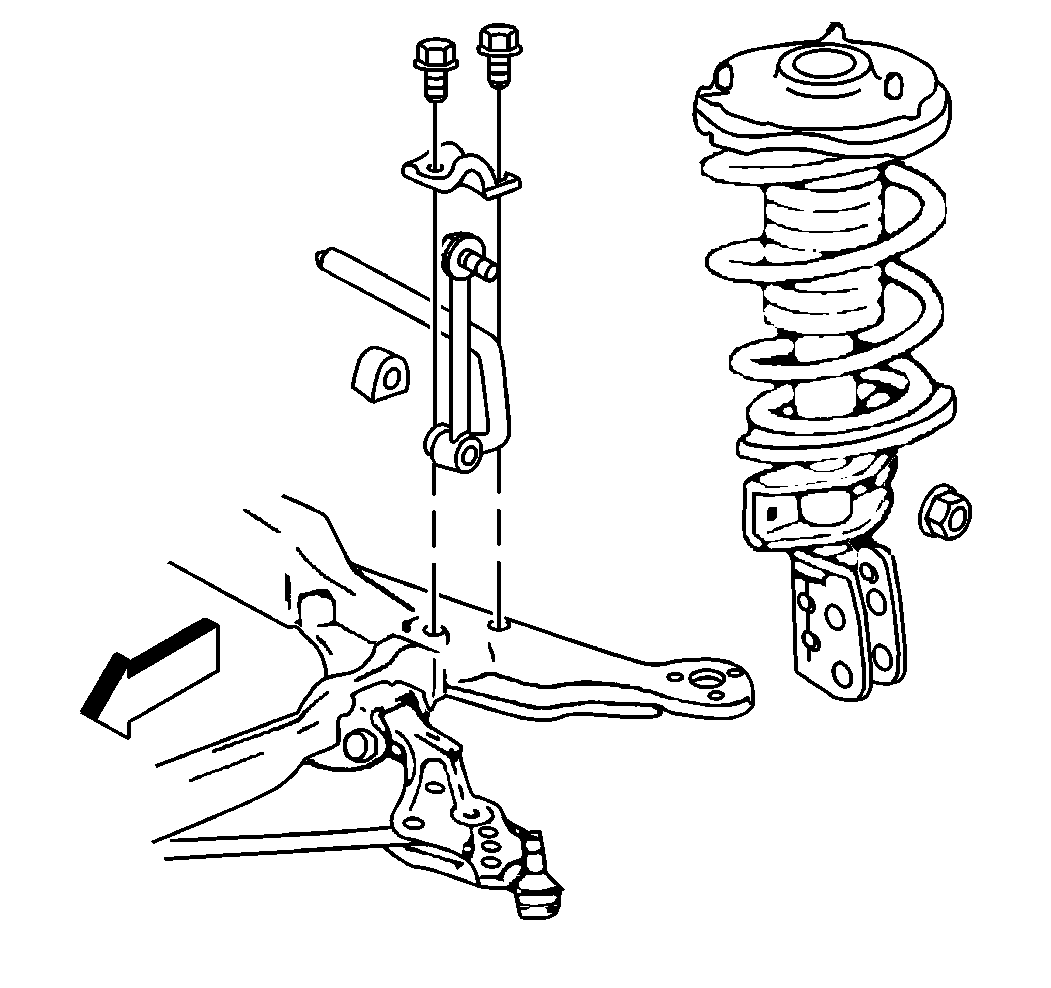For 1990-2009 cars only
Removal Procedure
- Raise the vehicle and support the vehicle frame with jack stands. Refer to Lifting and Jacking the Vehicle in General Information.
- Remove the right side tire and wheel assembly. Refer to Wheel Removal .
- Remove the road sensing suspension position sensor from the lower control arm.
- Remove the left and right stabilizer links using needle nose locking pliers in order to keep the ball stud from turning.
- Remove the left and right bracket bolts, brackets and insulators.
- Disconnect the exhaust pipe to manifold.
- Remove the stabilizer shaft.

Installation Procedure
- Install the stabilizer shaft.
- Install the exhaust pipe to manifold.
- Install the left and right stabilizer links using Torx® bit or pliers in order to keep the ball stud from turning while tightening the nut.
- Install the road sensing suspension sensor to the lower control arm.
- Install the right side tire and wheel assembly. Refer to Wheel Installation .
- Lower the vehicle.

Notice: Use the correct fastener in the correct location. Replacement fasteners must be the correct part number for that application. Fasteners requiring replacement or fasteners requiring the use of thread locking compound or sealant are identified in the service procedure. Do not use paints, lubricants, or corrosion inhibitors on fasteners or fastener joint surfaces unless specified. These coatings affect fastener torque and joint clamping force and may damage the fastener. Use the correct tightening sequence and specifications when installing fasteners in order to avoid damage to parts and systems.
Tighten
| • | Tighten the bracket-to-frame bolts to 45 N·m (33 lb ft). |
| • | Tighten the stabilizer link nuts to 55 N·m (41 lb ft). |
Tighten
Tighten the wheel nuts to 140 N·m (100 lb ft).
